Three Books That Live On My Desk
The reference works that make Shedunnit possible.
Dear listeners,
A few weeks ago I, along with a number of Shedunnit Book Club members, attended the Bodies from the Library conference at the British Library in London. It was a lovely day out, if rather warm, and one full of interesting detective fiction insights. If you survey the programme, you'll notice that several repeat Shedunnit guests were among those speaking!

It was one talk in particular that came to mind when I was deciding what to write you about today: Jake Kerridge and Moira Redmond's discussion of a "Golden Age Reference Shelf". Moira has helpfully posted the list of fifteen non-fiction books they talked about here on her blog — it encompasses Julian Symons, H.R.F. Keating and much more. There are some old favourites on there and others (Dilys Winn) that were new to me.
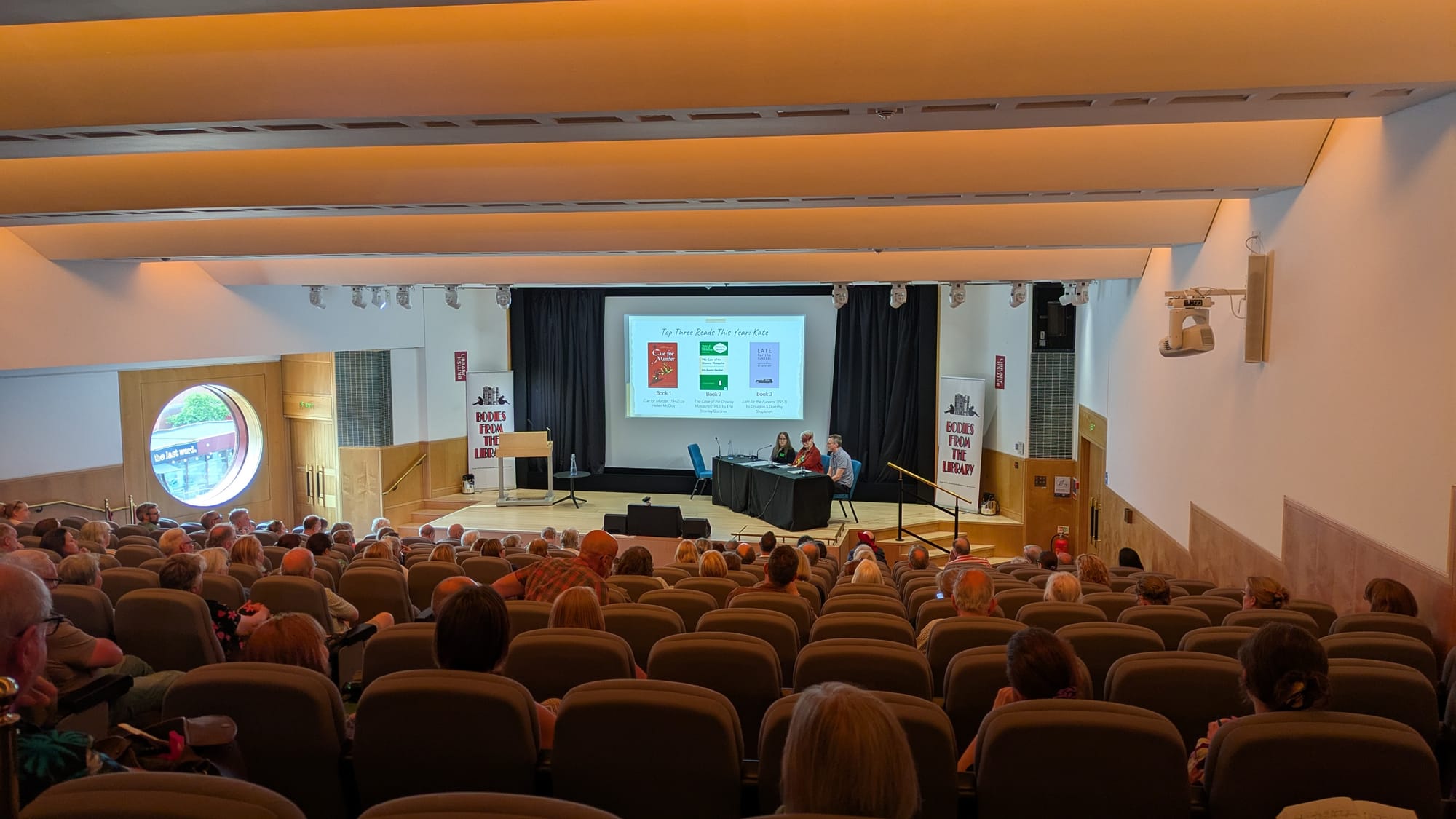
I wish I was organised enough to have a dedicated space for my non-fiction books about detective fiction, but I'm not. They are in a few different places around the house and when I have a sudden need for, say, a biography of Josephine Tey I dash around to all the possible shelves until I find it.
There are, however, three books from this golden age reference category that live permanently on my desk, and I thought it might be interesting to take a look at them together.
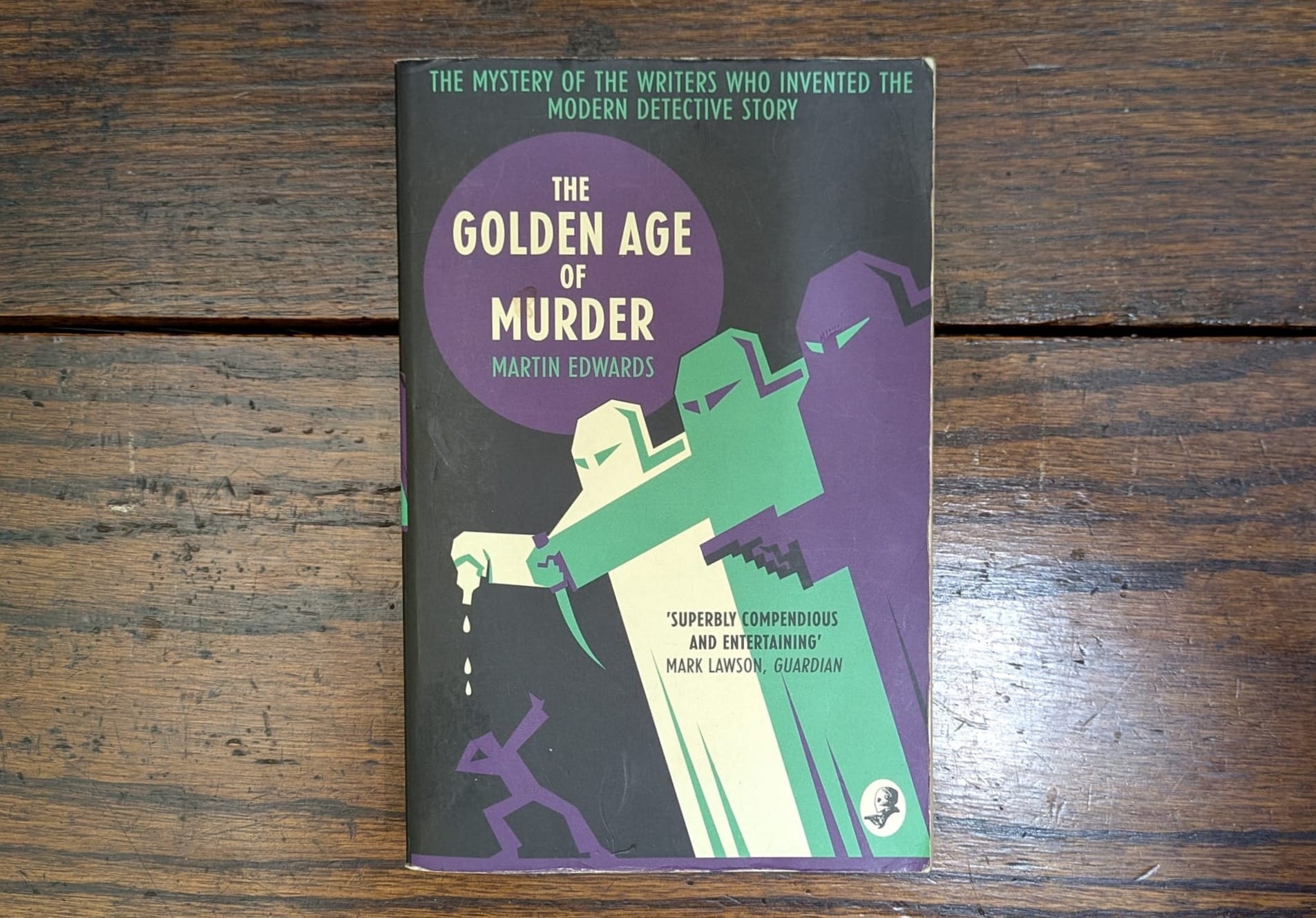
The Golden Age of Murder by Martin Edwards
Although this is a very digestible book that can absolutely be read cover to cover like a novel, I use it all the time as a reference work. It contains a couple of very handy appendices: one showing the full list of pre-1950 Detection Club members and their dates of election, and another giving the original "rules" and Club oath. There's also an index of titles that is incredibly useful and a bibliography that has inspired many an episode.
The revised and updated edition that was published earlier this year for the book's tenth anniversary is a substantial expansion on the original, as you can see from their relative sizes below. I haven't yet had time to read all of the new sections front to back, but as I've been magpie-ing my way through via the index I've already encountered some fascinating new material. The new chapter about thriller writers was especially interesting given the conversation I had with Kate Jackson for the episode about The Man in the Dark.
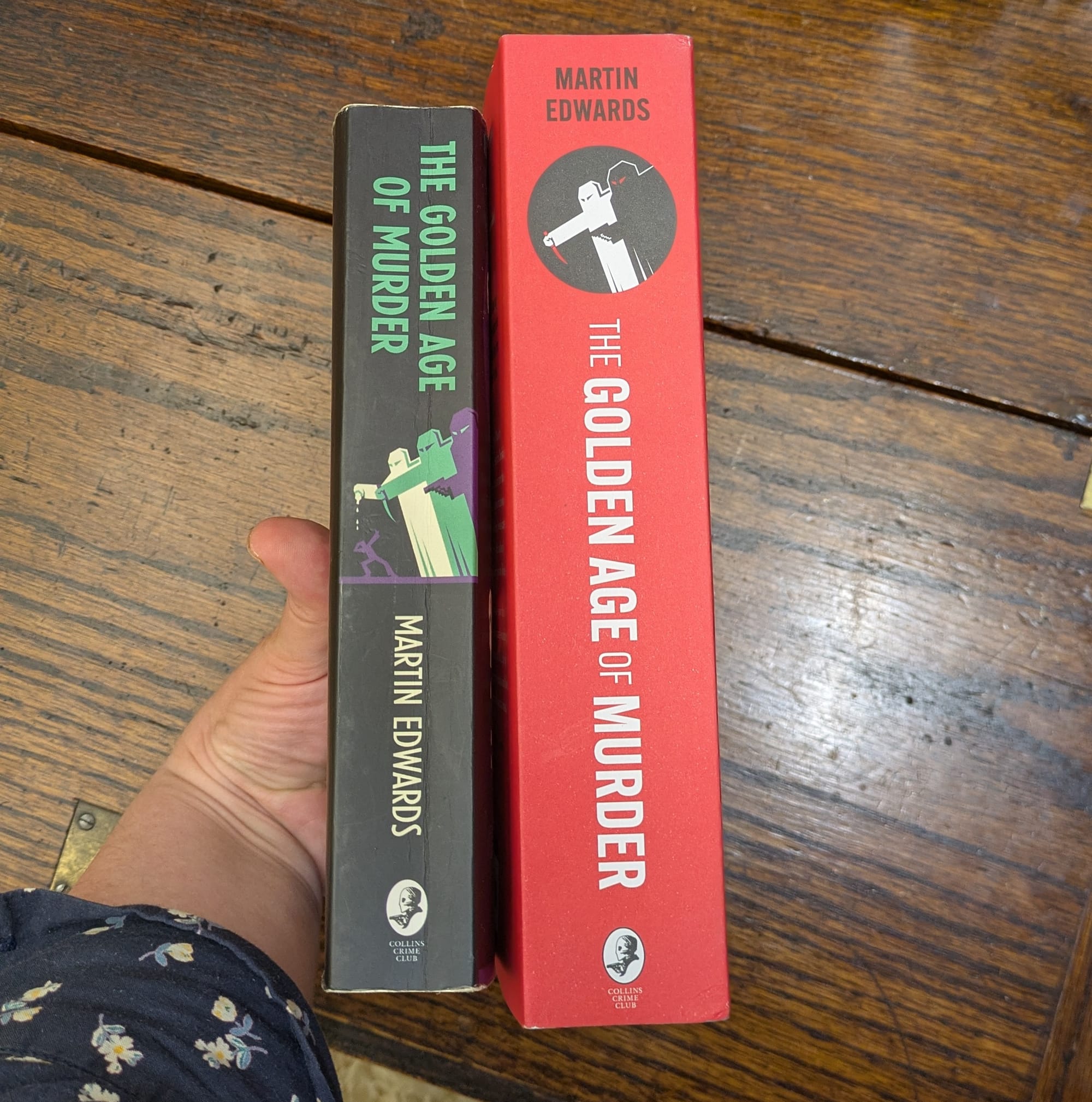
Martin, of course, has been a regular guest on Shedunnit over the years (and you'll be hearing from him again very soon!). My favourite episode we've done together to date is "The Psychology of Anthony Berkeley" from 2020 because Martin is such a passionate and knowledgeable Berkeley fan.
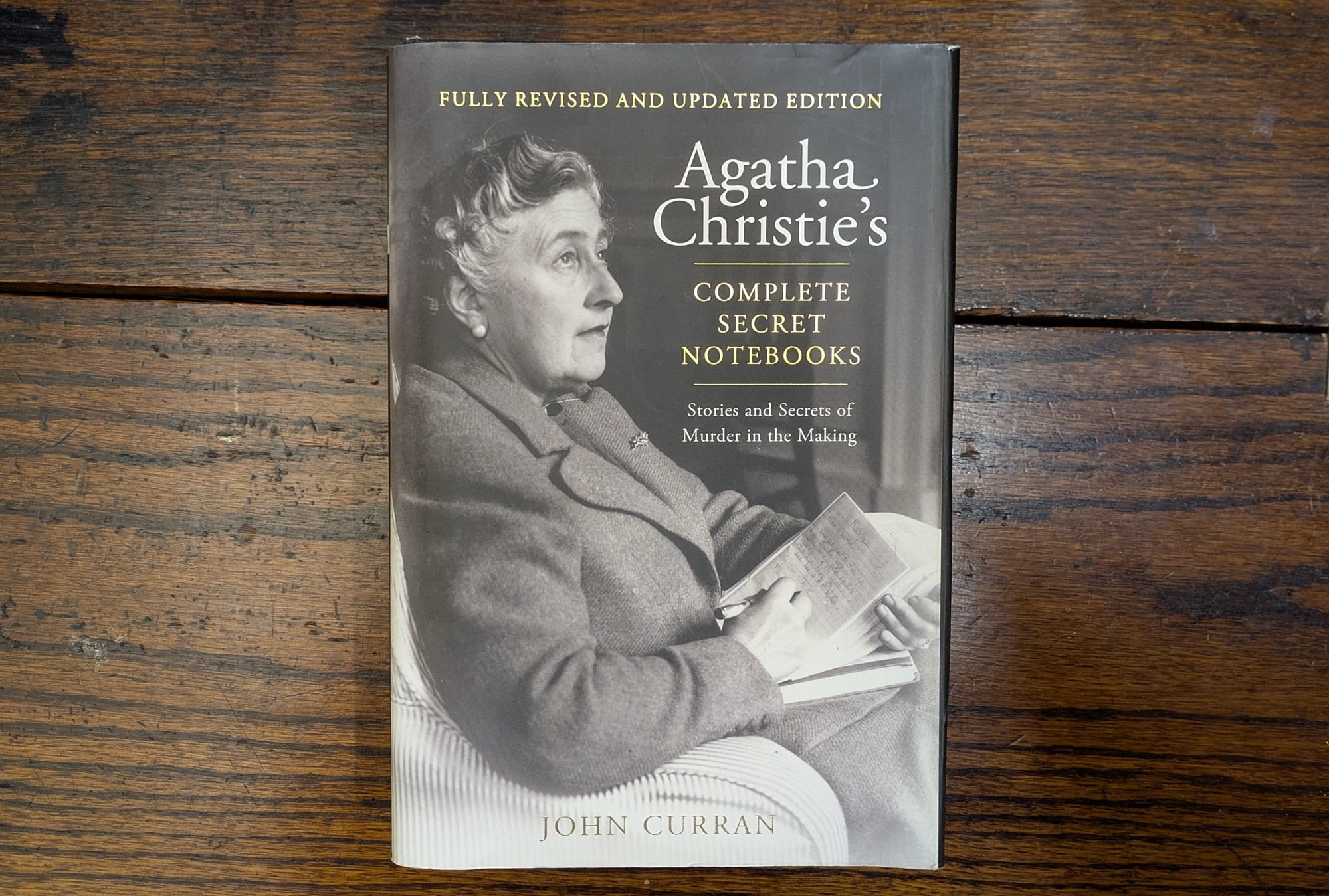
Agatha Christie's Secret Notebooks by John Curran
This magnificent work of scholarship was, I think, originally published in two volumes: "Secret Notebooks" and "Murder in the Making". I have this combined hardback edition and I very rarely talk about an Agatha Christie story or novel without checking its entry in here first.
The principal attraction of the book is that it contains Christie's own notes, organised chronologically by the publication dates of her stories and books. Thus, if I'm working on something that references Sad Cypress, say, I will take myself to Part III: The Third Decade and see what notes survive for that book. In addition to being able to see Christie's thought process on the page, the accompanying critiques that John Curran provides are excellent. He makes connections between books and contextualises what Christie was writing with what else was going on in her life. It wasn't until I started using this book, for instance, that I truly understood just how often she repeated the same plots!
Unlike The Golden Age of Murder, I do think this is a true reference book and I wouldn't consider it bedtime reading. It does contain some previously unpublished short stories, though, which are worth seeing.
You can hear John Curran talking about The Murder on the Links by Agatha Christie in this Green Penguin Book Club episode from 2024.
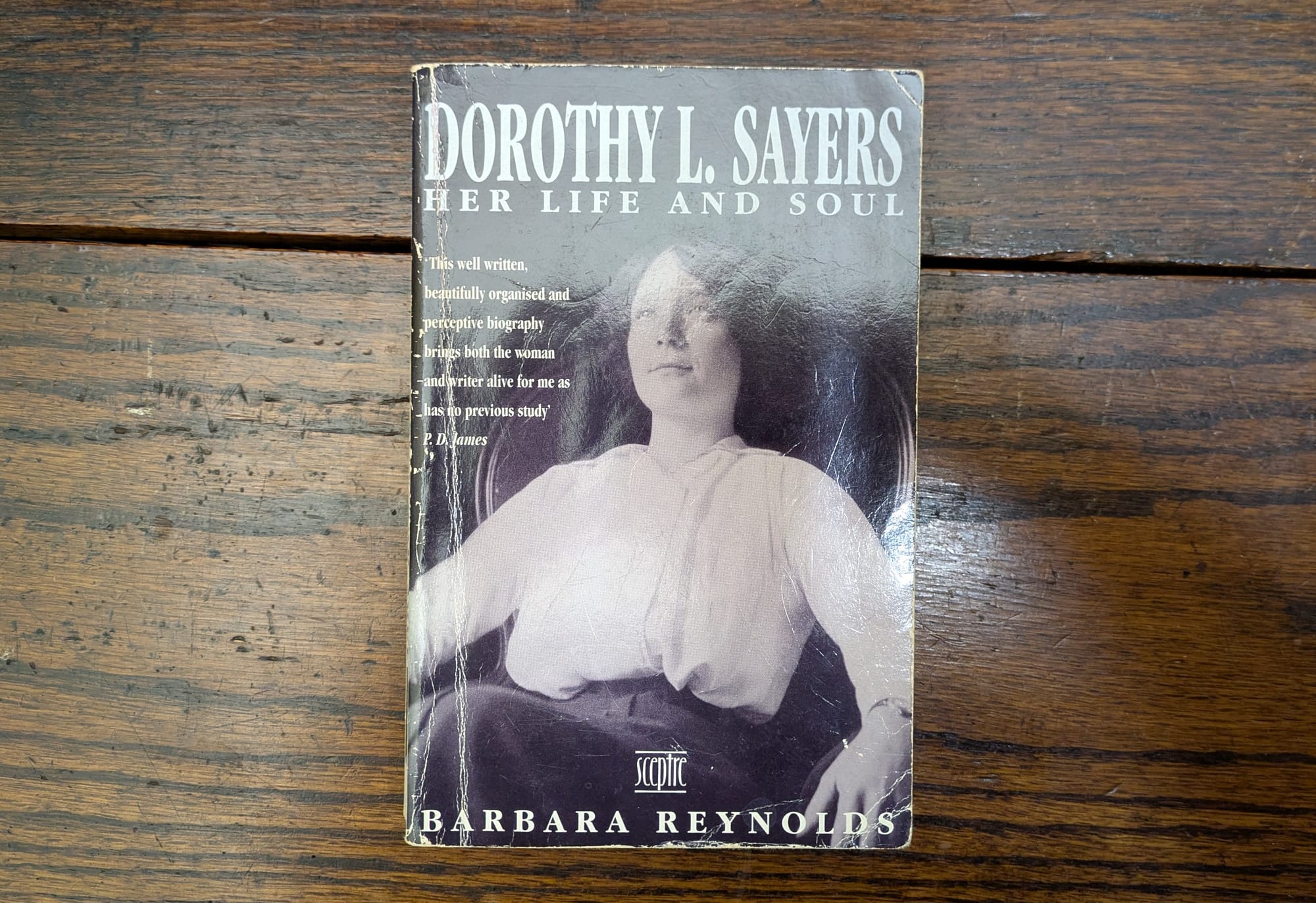
Dorothy L. Sayers: Her Life and Soul by Barbara Reynolds
Sayers has not been quite so well served by biographers as Christie. There are quite a few — I own at least five biographies of her — but they tend to come at her with a specific angle, whether through her translation work, her religious writing or her crime fiction. I have yet to read a really good, well-written holistic portrait of her. However, when I just want to know what Sayers was doing or thinking at any given time, I turn to this book by her friend and fellow translator Barbara Reynolds, which was first published in 1993.
Reynolds took on the work of finishing the translation of The Divine Comedy that Sayers left unfinished at her death and became the chairman of the Dorothy L. Sayers Society. She also edited the five volume series The Letters of Dorothy L. Sayers (which I also have and like but which does not fit on my desk, it is very heavy all together).
I think Barbara Reynolds probably had the best access to Sayers' personal material in the late 20C and was the best-equipped to make sense of it. Her writing is rigorous and her tone is warm without being overly sycophantic. It's not a long or comprehensive biography, but it amply covers all the bases and I dip into it often when I'm working on anything that mentions Sayers.
Barbara Reynolds sadly died in 2015 when this podcast was but a twinkle in my eye. However, I think you can feel the influence of this book most strongly in "The Advertising Adventures of Dorothy L. Sayers" episode from 2023.
I hope you find some reading inspiration there, or perhaps some ideas for sources for your own detective fiction related research. I'd be happy to write about other reference works I rate again in future if readers find it interesting.
In these in between-episode newsletters, I thought I might start giving a hint, for those who enjoy puzzling out clues, about the subject of next Wednesday's new episode via a book title. This time, I suggest that you might like to take a closer look at Death on the Down Beat by Sebastian Farr...
Until next time,
Caroline
You can listen to every episode of Shedunnit at shedunnitshow.com or on all major podcast apps. Selected episodes are available on BBC Sounds. There are also transcripts of all episodes on the website. The podcast is now newsletter-only — we're not updating social media — so if you'd like to spread the word about the show consider forwarding this email to a mystery-loving friend with the addition of a personal recommendation. Links to Blackwell’s are affiliate links, meaning that the podcast receives a small commission when you purchase a book there (the price remains the same for you).
